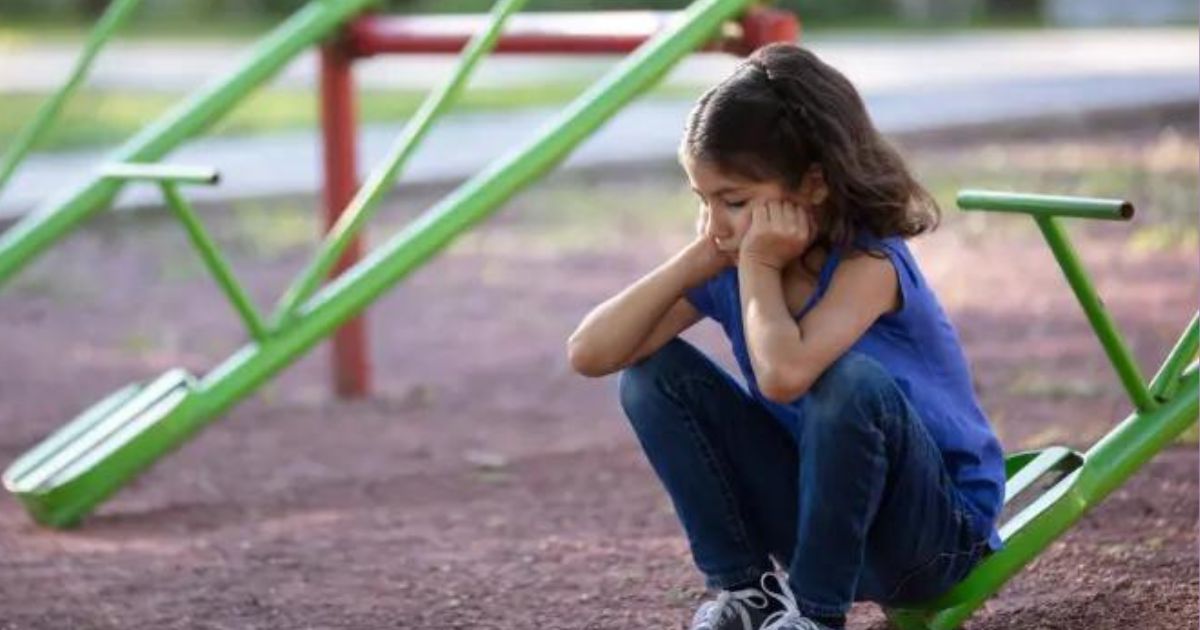In a groundbreaking study presented at the European Congress of Psychiatry, researchers unveiled disturbing findings regarding the long-term consequences of childhood loneliness.
The preliminary results suggest that individuals who experienced loneliness during their formative years are significantly more likely to suffer from psychosis later in life.
Led by Dr. Covadonga Diaz-Caneja of the Institute of Psychiatry and Mental Health at the Hospital General Universitario Gregorio Maranon in Madrid, Spain, the study analyzed data from 285 individuals who had experienced their first episode of psychosis and 261 individuals who had not.
The participants’ reports indicated a clear correlation between childhood loneliness and the likelihood of experiencing psychosis, characterized by hallucinations, delusions, and confused thoughts, in adulthood.
Childhood Loneliness And Risk of Psychosis
The study found that participants who reported feeling lonely for more than six months before the age of 12 faced a substantially higher risk of psychosis compared to those who had more social childhoods. Even after accounting for factors such as social isolation, childhood loneliness was associated with a staggering 117% increased chance of experiencing psychosis later in life.
However, the most striking aspect of the findings was the disproportionate impact on women. Women who reported experiencing loneliness in their elementary years exhibited a jaw-dropping 374% increased risk of psychosis in adulthood.
In contrast, their male counterparts showed a comparatively marginal 17% increase in risk. These results underscore the need for gender-specific interventions and support systems to address the mental health implications of childhood loneliness.
Dr. Diaz-Caneja emphasized the urgency of addressing childhood loneliness as a public health priority, highlighting its potential as an early indicator of future mental health disorders. She stressed the importance of implementing preventive interventions from an early age to mitigate the risk of psychosis and other psychiatric conditions.
The study’s findings have broader implications for society, particularly in light of the growing recognition of loneliness as a public health crisis. In 2022, the United States officially declared loneliness an epidemic, citing its detrimental effects on mental health and overall well-being, especially in the aftermath of the COVID-19 pandemic.
Experts warn that the prevalence of childhood loneliness appears to be on the rise, making it imperative to prioritize social connectedness and emotional well-being from an early age.
Professor Andrea Fiorillo, the president-elect of the European Psychiatric Association, underscored the significance of the study’s findings, describing them as a “concerning trend” that necessitates immediate action.
She emphasized the importance of addressing social connectedness and emotional well-being as essential components of mental health promotion and disease prevention efforts.
Furthermore, experts caution that the health risks associated with loneliness extend beyond mental health, with studies equating the impact of loneliness on health to that of smoking 15 cigarettes a day.
This stark comparison underscores the urgent need for comprehensive strategies to address loneliness and promote social cohesion at all stages of life.
As policymakers, healthcare professionals, and communities grapple with the implications of this research, there is a growing consensus on the need for proactive measures to combat loneliness and support individuals, particularly vulnerable populations such as children and adolescents, in building meaningful connections and resilience against mental health challenges.








Leave a Reply
You must be logged in to post a comment.